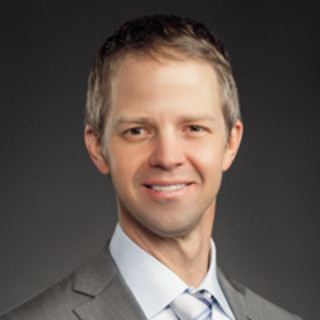
Whenever we interview new staff for my office I mostly prefer to sit and listen. I only ask one question. Our office manager now refers to it as “my question.” It may lack creativity, but it cuts to the one thing I really want to know about someone on my team: Can I trust you?
It goes like this:
“Let’s say that we are working together and we enter the patient’s room for a knee injection. You watch me prep the leg and I am about to put the needle in the knee. But you know that it’s a left knee injection and I’m about to place the needle in the right knee. I have the needle in my hand and am counting down. What do you do?”
I’m not necessarily looking for the answer. Most applicants will say, in some fashion, that they would stop me. Who wouldn’t, right? I’m looking for how fast they answer and how strongly. I have recommended against hiring people who took too long to answer the question because in the real world it would have been too late. My preferred answer is an unhesitating and unwavering: “Stop.”
After the question I always give the same talk.
It goes like this:
If you are on our team you have a hand on the brake. You can say stop. You are encouraged, no, you are obligated to say stop if something seems wrong. If I am being childish, irritable or impatient you should be all the more ready to stay stop because I’m probably about to make a mistake. Our team is like the TSA (transportation security administration), “If you see something, say something.”
Now, the irony of comparing my highly efficient, skilled, and well-oiled team to the TSA is not lost on me. But their slogan is really quite good. Sometimes I use it in the operating room during the time out. It’s like a mantra. Luckily, our facility is small and I know the scrub technicians and circulating nurses and recovery room nurses. They will say stop. They have done it before. And I trust them for it.
But I wonder about myself.
How many times have I noticed something wrong and let it pass? What about the pediatric corner fracture that’s suspicious for child abuse? Or something more subtle, like when a patient returns for an MRI review and I know it sure looks like a sarcoma. I recommend a referral to a major center, and that’s my due diligence, but deep down I know they don’t have the support system to negotiate that level of care. I know they don’t even have the bus fare to get there. Do we just hope for the best? How far do we go to address the problems that are bigger than our selves?
Sometimes it feels like the tide of troubles in the world is always rising. Who and how are we to try to stop it?
That’s what I thought about when I read this letter from a friend from medical school. She chose to dedicate herself to an under-appreciated field in an under-appreciated community and when the tide of troubles came to her door, she wondered what to do as well.
Dear Congressman Hurd,
I am a family physician in the Big Bend. I believe you met with my partner, Adrian Billings, at our clinic in Alpine last year. My husband, John, is also a physician. We consider ourselves liberal democrats but have considered voting for you due to your reasonable stance on a border wall and healthcare. We’ve been very impressed that you seem to think for yourself and for our part of Texas, instead of toeing the party line. That is why I contact you now. I am desperate and don’t know where to turn. As a mother and a physician, I beg you to intervene for the families being separated at the border. I work in Presidio. I care for border patrol agents and undocumented migrants in my clinics. I take care of people after they’ve spent days crossing the desert and are suffering from dehydration and exhaustion. I am a mother of two (2yo and 4mo). If I thought my kids were in danger from gang violence, I’d break any law, do anything to protect them. To have them taken from me is my deepest fear and I cry for the parents and children who are separated from each other after their harrowing journeys. Please stop everything else. This is urgent and its happening in Texas. You represent the largest stretch of our southern border. Please intervene with your party. You will have my vote. But its much more important than that. I cannot spare children in Syria their fate. I cannot spare many much of their suffering, even as a physician in an underserved part of the country. I cannot treat more than one patient at a time. But this is suffering happening in our backyard, that we are inflicting, cruelly. Please help me to do something. I just don’t know how.
Katie Kucera Ray, MD
In medicine, we are given so much intimacy to people in so short of time. Sometimes we open the door to the clinic room and are expected to wade through worlds of suffering in a 15-minute office visit. The tide is high and we know we don’t have anything with which to hold back the waters. Isn’t it easier to just close the door, turn our backs, move on to the next patient, and hope for the best? At least we keep ourselves from drowning.
If we are incredibly honest with ourselves, then at some level, a rationing of care goes on in our minds with every visit, every patient, every day.
But sometimes we see something that touches a nerve, something which makes us call stop. Occasionally we see that something which cannot be overlooked or ignored. It hangs there in the darkness when we lie in bed and chases away sleep.
Sometimes we are obligated to do something even if its something so much larger than ourselves.
If you see something, say something. Even if you don’t know what else to do.
Brian Gilmer, MD is an orthopedic surgeon in Mammoth Lakes, CA. He is a 2018–2019 “Doximity Author.”






